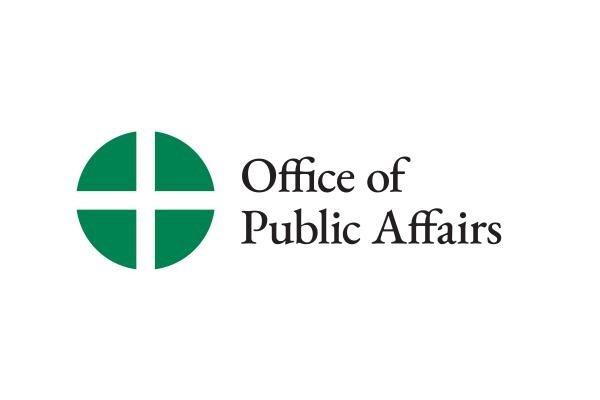U.S. Bishops Affirm Advancement of a Cause of Beatification and Canonization of Father Richard M. Thomas, SJ
The bishops held a canonical consultation on a possible cause of beatification and canonization for Reverend Richard M. Thomas, a priest of the Society of Jesus.

BALTIMORE - At their November Plenary Assembly, the bishops of the United States held a canonical consultation on a possible cause of beatification and canonization for Reverend Richard M. Thomas, a priest of the Society of Jesus. Bishop Thomas John Paprocki, chairman of the U.S. Conference of Catholic Bishops’ (USCCB) Committee on Canonical Affairs and Church Governance, and Bishop Peter Baldacchino of Las Cruces, facilitated the discussion by the bishops. With 206 votes in favor, 4 votes against, and 1 abstention, the bishops affirmed their support for the advancement of the cause of beatification and canonization on the diocesan level.
The following brief biography of Father Richard Thomas, SJ, was drawn from information provided by the Diocese of Las Cruces:
Richard Thomas was born on March 1, 1928, in Seffner, Florida. He was educated in Catholic schools and graduated from Jesuit High School in Tampa. He entered the Jesuit order in 1945, and was ordained to the priesthood in San Francisco, California in 1958. In 1964, he was assigned to lead Our Lady’s Youth Center in El Paso, Texas, a ministry to the poor in south El Paso. He expanded the reach of Our Lady’s Youth Center to New Mexico and across the border to areas of Juarez, Mexico.
On Christmas Day in 1972, prompted after reading Luke 14:12-14 where Jesus tells his followers to invite the poor - not their rich friends - to dine, Father Thomas invited a prayer group from El Paso to join him in serving dinner to the poor who lived and worked at a garbage dump in Juarez, Mexico. While Father Thomas and his group only took enough food to feed 150 people, more than 300 people came to dinner and each was served a full meal. With leftovers that were donated to three orphanages after the dinner, the group later realized that the Lord had multiplied the food; the event prompted the group to not only return to the garbage dump on a regular basis, but also led them to advocate for better income for the trash pickers, and start additional ministries to the poor such as food banks, a prisoner outreach program, a medical and dental clinic, and student scholarship assistance. It is said that while Father Thomas believed in miracles such as what happened at the Christmas dinner in 1972, he did not assign them a central place in his work or his message; instead, he chose to see them as ways that God would occasionally intervene to encourage and guide Christians to do His will. Father Thomas considered it the duty of every Christian to share with the poor and preached on Catholic social teaching and living out the Gospel values taught by Christ.
As a gifted preacher and teacher, Father Thomas was a sought-after speaker and gave talks at conferences, seminars, and workshops around the world, and had a special charism in mobilizing lay people to get involved in the Church and in helping the poor in their local area. Father Thomas lived the virtue of fortitude heroically, having the courage of his convictions and courageously facing the opposition that arose as he did what he felt God was calling him to do. He also lived the virtue of justice in an extraordinary way. Working for a just society and championing people who were victims of inequality or oppression was an ever-present emphasis of his ministry. In trying to live a just life and work for justice for others, Fr. Thomas lived an ascetic lifestyle, profoundly exemplifying the virtue of temperance: he slept on an army cot or on the floor, lived without heating or cooling in the houses or cars he used, wore his clothes until they were threadbare, and gave away many things of his that the poor needed.
Father Richard Thomas died on May 8, 2006, in Las Cruces, after several years of declining health including a battle with cancer. He was laid to rest in the Jesuit plot of Concordia Cemetery in El Paso and leaves behind a legacy of a strong commitment to social justice and an unwavering obedience to God's word.
###
Media Contacts:
-
Chieko Noguchi

